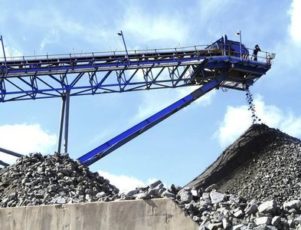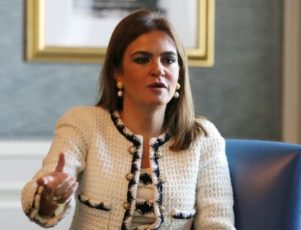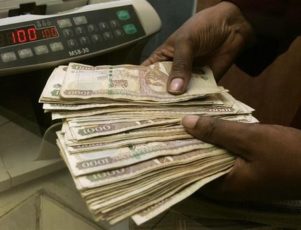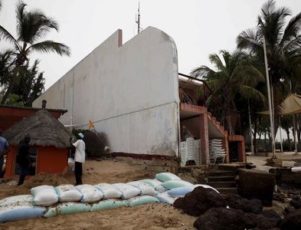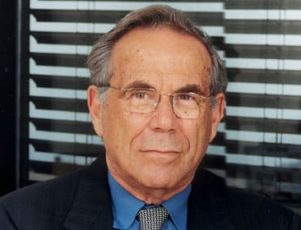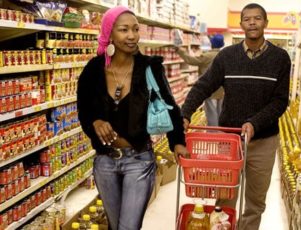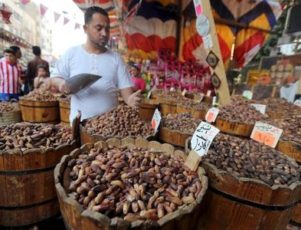JOHANNESBURG (Reuters) – South African President Jacob Zuma’s sacking of his respected finance minister in favour of a relative unknown has shocked investors and emboldened critics who say the 73-year-old is driving the economy to ruin.
Even some supporters of the African National Congress (ANC), Nelson Mandela’s erstwhile liberation movement that has ruled since the end of apartheid in 1994, expressed dismay about Wednesday’s appointment of a Zuma loyalist to the crucial post.
Zuma gave no details as to why on Wednesday he dismissed Nhlanhla Nene, who has overseen the Treasury for just under two years, other than to say he had “done well… during a difficult economic climate”.
Markets reacted unambiguously, with the rand plunging to a record low against the dollar, losing just over five percent since Nene was removed. The Johannesburg Stock Exchange’s banking index lost 13.5 percent on Thursday.
New Finance Minister David van Rooyen acknowledged he had taken on “a colossal assignment”.
Local media speculated this week that Nene might be on the chopping block after he rebuked Dudu Myeni, the chairwoman of state-owned South African Airways and a close ally of Zuma, for mismanaging a 1 billion rand ($67 million) deal with Airbus.
Myeni is executive chairwoman of Zuma’s charitable trust, the Jacob Zuma Foundation.
The main opposition party went on the attack. “It is clear that if you stand up to Zuma, you don’t stick around,” Mmusi Maimane, leader of the Democratic Alliance, told Reuters. “Zuma has reached new heights as a leader who puts himself ahead of his country and the economy.”
Zuma’s office did not respond to Reuters requests for comment. The ANC said in a statement it “notes and respects” the president’s decision.
“TOO MUCH CORRUPTION”
The sacking and the financial fallout hit a raw nerve with some ordinary South Africans. “With the rand getting battered like this, firing Nene is not the right move,” said Dominic Ratau, a 74-year-old pensioner and lifelong ANC loyalist, expressing his dissatisfaction with Zuma.
“I’ve been an ANC supporter because of the older generation who were running the party. But this guy is leading the country to disaster. He’s allowed too much corruption.”
Nene’s reluctance to rubber-stamp an ambitious plan to build a number of nuclear power stations to ease severe electricity shortages, a project that might cost as much as $100 billion, is also seen as contributing to his downfall.
His successor van Rooyen is an ANC lawmaker who sits on parliament’s finance committee.
Van Rooyen said he would implement policies aimed at creating favourable investment conditions after he was sworn in. “Mine is a colossal assignment coming at a time when the global economic outlook is not favourable, more especially for emerging markets,” van Rooyen said.
Many economists have questioned van Rooyen’s ability to steady an economy being hammered by the collapse in prices of South Africa’s commodity exports that range from coal to gold, and raised concerns that public spending could spiral out of control.
Credit agency Fitch downgraded South Africa last Friday, leaving the continent’s most sophisticated economy just one notch about “junk” status, and said on Thursday Nene’s firing “raised more negative than positive questions”.
A Reuters poll on Wednesday showed analysts expect the economy to grow just 1.4 percent this year and 1.6 percent next, 0.1 percentage points lower than last month’s forecasts.
WHO’S NEXT?
Nene’s removal has raised speculation about more casualties within Zuma’s team, after the axing in September of mining minister Ngoako Ramatlhodi, who investors said had done a decent job in a tough but crucial portfolio.
South Africa is gearing up for important local elections next year where the ANC is expected to be run close by the Democratic Alliance in urban areas, including the economic hub of Johannesburg. The countryside remains an ANC stronghold.
Significant erosion of ANC control in metropolitan powerbases could strengthen Zuma’s opponents, especially if South Africans blame him for the floundering economy.
“Zuma’s power is becoming more brittle and his lines of support stretched thinner and thinner,” said political analyst Nic Borain. “He is engaging in actions that parts of his party find repulsive and there is a point beyond which a system under stress can quickly unravel as the connections snap.”
A #ZumaMustFall Twitter campaign kicked off within hours of Zuma’s announcement, echoing one earlier this year calling for the removal of colonial-era statues.
SCANDAL
Zuma, a polygamous Zulu traditionalist with little formal schooling, has been beset by scandal throughout his career. In 2005 he was charged with raping a woman he knew to HIV-positive, but was found not guilty when the court ruled the sex was consensual.
Last year, the Public Protector, the top anti-corruption watchdog, ruled that he had “benefited unduly” from a 246 million rand state-funded security upgrade to his private home that included a swimming pool and amphitheatre.
Despite this, he has maintained his authority and standing in the ANC. His presidential term ends in 2019. Were he to be forced out early, his ex-wife and African Union head Nkosazana Dlamini-Zuma, and deputy president Cyril Ramaphosa, are the front-runners to succeed him.
(By Joe Brock and Ed Cropley. Additional reporting by Nqobile Dludla and Mfuneko Toyana; Writing by Joe Brock; Editing by James Macharia and David Stamp)
Read more


